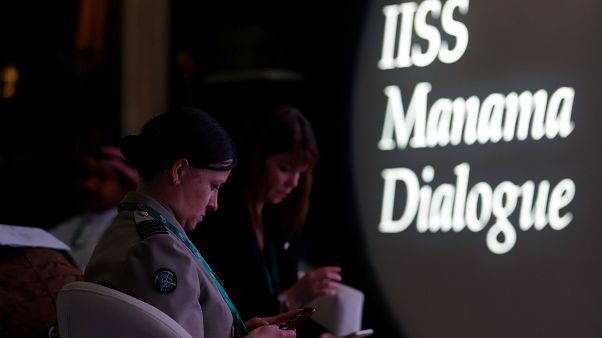
The French minister is concerned about the decline of the US military presence in the Middle East
PARIS (Reuters) - France's military minister said on Saturday she was concerned about the consequences of what she saw as a "gradual and deliberate" decline in the US role in the Middle East.
Since May, the region has been on heightened tensions over the mysterious attacks against oil tankers, drones and missile strikes against Saudi Aramco oil installations.
The United States, Saudi Arabia and other countries have blamed Iran, which has denied any role.
But despite these accusations and accidents, including the shooting down of a US drone, the US avoided reciprocating.
"We have seen a gradual intentional US engagement," Barley said in a speech at the annual Manama Dialogue conference, adding that the policy "has been on paper" for a while but has become more apparent lately.
"When ships went off without a response, the drone was shot down. When that happened without response, major oil facilities were bombed. Where do these events stop? Where are the stabilizing parties?"
"The region is used to receding and then increasing US intervention. But this time it seemed more dangerous," Barley said.
She said the US retreat was on a "slow track", recalling the passage of a US aircraft carrier and other escort ships this week in the strategic Strait of Hormuz.
"But the trend is clear, I think, no matter who wins the next election," she said.
In a show of force, the aircraft carrier Abraham Lincoln and his group crossed the strategic Strait on Tuesday.
According to the Pentagon, the last transit of a US aircraft carrier to the Strait of Hormuz dates back to April.
وزيرة الجيوش الفرنسية قلقة من تراجع الحضور العسكري الأميركي في الشرق الأوسط
أعربت وزيرة الجيوش الفرنسيّة فلورانس بارلي السبت عن قلقها من تبعات ما اعتبرته تراجعا "تدريجيا ومتعمدا" للدور الأميركي في الشرق الأوسط، معتبرة أنّ تجنّب الرد على اعتداءات في الخليج اتُهمت إيران بالوقوف خلفها، ولّد أحداثا "خطيرة".
ومنذ أيار/مايو، تشهد المنطقة توتّرا متصاعدا على خلفية هجمات غامضة ضد ناقلات نفط وضربات بطائرات مسيّرة وصواريخ ضد منشآت شركة أرامكو النفطية السعودية.
وقد ألقت الولايات المتحدة والسعودية ودول أخرى باللوم على إيران، التي نفت أي دور لها.
لكن على الرغم من هذه الاتهامات والحوادث، وبينها اسقاط طائرة مسيّرة أميركية، تجنّبت الولايات المتحدة الرد بالمثل.
وقالت بارلي في خطاب خلال مؤتمر "حوار المنامة" السنوي "رأينا عدم انخراط أميركي تدريجي متعمّد"، مضيفة أن هذه السياسة "كانت مطروحة على الورق" لفترة من الوقت لكنّها أصبحت أكثر وضوحًا مؤخّرا.
وأضافت "عندما مضى تلغيم سفن دون رد، أُسقطت الطائرة بدون طيار. وعندما حدث ذلك بدون رد، تم قصف منشآت نفطية رئيسية. أين تتوقّف هذه الأحداث؟ أين الأطراف التي تفرض الاستقرار؟".
وتابعت بارلي أن "المنطقة معتادة على انحسار ثم تزايد التدخل الأميركي. لكن هذه المرة بدا الأمر أكثر خطورة".
ورأت الوزيرة أنّ التراجع الاميركي يمضي ضمن "مسار بطيء"، مذكّرة بمرور حاملة طائرات اميركية وسفن أخرى مرافقة لها هذا الاسبوع في مضيق هرمز الاستراتيجي.
وقالت "لكن الاتجاه واضح، كما أعتقد، بصرف النظر عمن سيفوز في الانتخابات المقبلة".
وفي استعراض للقوة، عبرت حاملة الطائرات أبراهام لينكولن والمجموعة المرافقة لها الثلاثاء المضيق الاستراتيجي.
وبحسب وزارة الدفاع الأميركية (البنتاغون)، يعود آخر عبور لحاملة طائرات أميركية لمضيق هرمز إلى نيسان/أبريل
Comments
Post a Comment